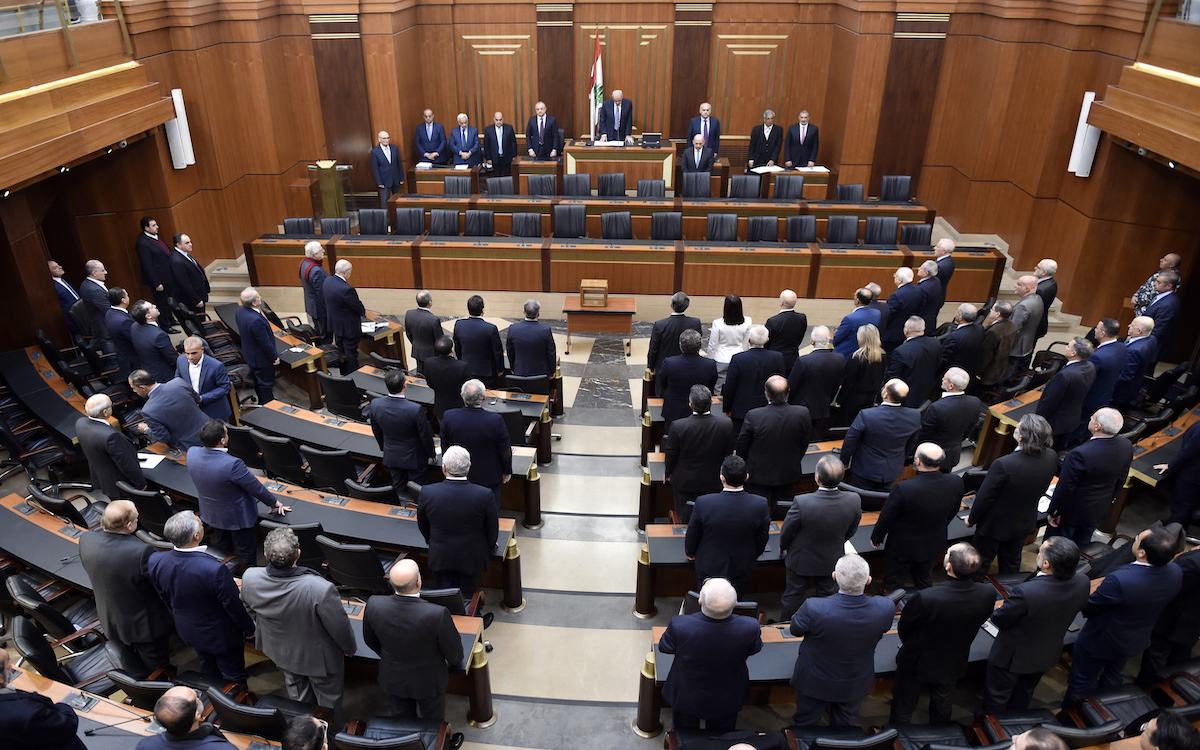
Lebanon’s Parliament failed for the 11th time to elect a new president during its first parliamentary session of 2023 after the session was postponed last week following the death of former Parliamentary Speaker Hussein al-Husseini.
What happened: Of the 128 members of Lebanon’s Parliament, only 110 showed up to vote, with the ballots tallied looking similar to those in the last 10 failed attempts to elect a president.
- Michel Moawad remained the individual receiving the most votes, with 34 ballots cast in his name.
- However, the blank ballots actually received the largest number of “votes” at 37.
- The majority of the remaining votes were protest votes, such as the 14 for “New Lebanon,” with the occasional vote for other candidates like Ziad Baroud and Issam Khalifa.
- There were also 15 canceled votes that included ballots for the victims of the August 4 Beirut Port Explosion, as well as the United States Senator for Vermont, Bernie Sanders.
The context: Lebanon has been without a president for nearly three months after Michel Aoun’s term expired on October 31. All the while, the economic crisis has continued to deepen with the lira reaching a new grim milestone of 50,000 to $1 just an hour before the vote took place.
Also, during the vote, a protest was held outside of Parliament by the families of the victims of the Beirut Blast. This came just days after William Noun, brother of the firefighter Joe Noun who was killed in the explosion, was temporarily detained by security forces and after other family members of the victims were interrogated.
In light of this, “change” MP Firas Hamdan held up a banner with the pictures of the over 200 people killed in the explosion during the session.
What this tells us: Nothing has really changed in the weeks since the last electoral session held just before the holidays as Parliament remains divided and unable to agree on a candidate to replace Aoun.
- The Hezbollah bloc in Parliament continues to cast blank ballots as they have so far been unable to come to a consensus on a specific candidate. The problem mainly spurs from Gebran Bassil and the Free Patriotic Movement, who refuse to back Sleiman Frangieh, Hezbollah’s preferred choice for the presidency, or Joseph Aoun, Lebanon’s army commander who could serve as a consensus candidate.
- Once Hezbollah finally officially names a candidate, it will likely change the dynamics of the sessions as most view the group’s support as being an unofficial requirement for election.
- The opposition and “change” MPs remain divided and unable to agree on a single candidate to support, which has led to multiple names being thrown into the running as well as some MPs continuing to cast “protest” ballots rather than supporting a specific candidate.
- Lebanon’s politicians are continuing to use the same rhetoric that they have been using for months by saying that they want dialogue between the parties in order to come to a consensus on a specific candidate.
- Samir Geagea, leader of the Lebanese Forces, recently expressed the need for a serious candidate to be named as president rather than just someone to fill the role, and that the Lebanese Forces are consulting with the other parties on names.
- “Change” MPs Melhem Khalaf, Najat Aoun Saliba and Firas Hamdan also announced that they would be holding an open-ended sit-in inside Parliament until MPs hold consecutive sessions and finally elect a new president. Kataeb leader, Samy Gemayel said that his party might join them in their sit-in. It is not clear for how long this sit-in will actually last as, given Lebanon’s history, it will be a protracted period before a new president is finally agreed upon.
What next: Right now, no new session has been scheduled yet, but unless there is a breakthrough that sees a candidate receive backing from the majority of Parliament, or if a quorum is maintained so a second vote can be held, each attempt to elect a president will likely continue to see deadlock.
Nicholas Frakes is a senior reporter with @NOW_leb. He tweets @nicfrakesjourno.








